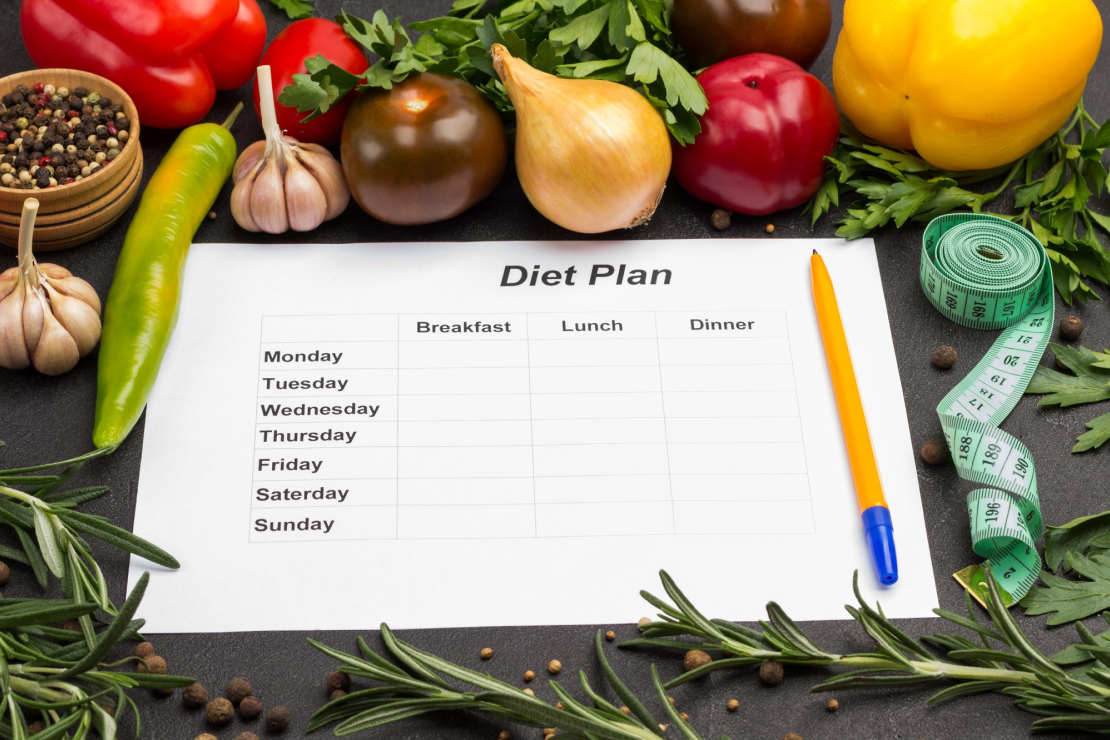Ultimate Guide to Meal Prep and Planning
Master the art of meal planning with our comprehensive guide to prep, portion control, and organization. Save time and stay on track with your nutrition goals.

Table of Content
Why Meal Prep Matters
Meal prepping is more than just a trend—it's a powerful strategy for maintaining a healthy diet, saving time, and reducing stress around food choices. When done right, meal prep can transform your relationship with food and help you achieve your health goals more efficiently.
Essential Meal Prep Equipment
Before you start your meal prep journey, ensure you have these basic tools:
- Quality food storage containers (glass or BPA-free plastic)
- Sharp knives and cutting boards
- Measuring cups and food scale
- Sheet pans and cooking vessels
- Food processor or blender
Step-by-Step Meal Planning Process
- Plan Your Menu
Start by planning your meals for the week, considering:
- Your nutritional goals
- Weekly schedule and commitments
- Food preferences and dietary restrictions
- Ingredient seasonality and availability
- Create a Shopping List
Organize your list by:
- Produce section
- Protein sources
- Pantry staples
- Seasonings and condiments
- Prep Day Strategy
Follow this efficient prep sequence:
- Start with items that take longest to cook
- Prep vegetables while other items cook
- Portion meals into containers
- Label everything with dates
Time-Saving Prep Techniques
Efficiency is key when it comes to successful meal preparation. Start by batch cooking your proteins and grains, which forms the foundation of your meals for the week. Utilize sheet pan cooking to prepare multiple ingredients simultaneously, maximizing your oven space and minimizing active cooking time. Focus on versatile ingredients that can be repurposed across different meals - for example, roasted vegetables can be used in salads, grain bowls, or as side dishes. Make the most of your freezer space by preparing larger batches of soups, stews, and casseroles that can be portioned and frozen for future use. This approach not only saves time but also ensures you always have healthy meals ready to go.
Storage and Food Safety
Keep your prepped meals fresh and safe:
- Store cooked meals for 3-4 days in the refrigerator
- Freeze meals for up to 3 months
- Use proper cooling techniques before storage
- Label containers with contents and dates
Making Meal Prep Sustainable
Creating a sustainable meal prep routine requires a thoughtful approach that balances efficiency with flexibility. Begin by starting small - perhaps prepping just a few meals per week - and gradually increase your prep as you become more comfortable with the process. Develop a rotating menu of favorite recipes that you enjoy and can prepare confidently, while periodically introducing new dishes to prevent meal fatigue. Build flexibility into your meal plan to accommodate social events and unexpected schedule changes, ensuring your meal prep routine enhances rather than restricts your lifestyle. Keep a journal or digital log to track which meals and prep strategies work best for you, allowing you to refine your approach over time. This systematic method helps transform meal prep from a temporary solution into a lasting healthy habit.
Common Meal Prep Mistakes to Avoid
- Preparing too much food at once
- Not varying your meals enough
- Forgetting to account for snacks
- Neglecting proper food storage techniques
- Not planning for flexibility in your schedule
Calorie and Macro Tracking for Meal Prep
Effective meal prep starts with understanding your nutritional needs:
- Calculate your BMR and daily calorie needs
- Use a food scale for accurate portion control
- Track macros with nutrition apps
- Plan meals around protein, carbs, and healthy fats
- Monitor progress with regular weigh-ins and measurements
Smart Calorie and Portion Control
Understanding portion sizes is crucial for successful meal prep and weight management. When it comes to grains and starches, a single cup of cooked rice or quinoa typically contains 200-250 calories, providing the perfect foundation for a balanced meal. This portion size offers sustained energy while keeping calorie counts in check.
Lean proteins form the cornerstone of healthy meal prep. A 6-ounce serving of chicken breast contains approximately 180-200 calories and provides essential protein for muscle maintenance and satiety. This portion size ensures you're getting adequate protein without excessive calories, making it ideal for weight management goals.
Healthy fats are essential but calorie-dense. A tablespoon of olive oil contains about 120 calories, while a one-ounce serving of nuts or seeds provides 160-180 calories along with beneficial nutrients. Being mindful of these portions helps maintain the right balance in your meal prep strategy.
Smart Meal Prep for Weight Management
Strategic meal prep can support your weight goals:
- Prepare portion-controlled containers
- Include low-calorie, high-volume foods
- Plan healthy snacks and alternatives
- Track macros and calories in advance
- Prepare emergency healthy options
Popular Meal Prep Combinations
Creating balanced and satisfying meal combinations is essential for successful meal prep. A classic protein-focused option combines lean chicken breast (150-200 calories per serving) with a colorful array of roasted vegetables, providing a nutrient-rich meal that supports muscle maintenance and overall health. For breakfast meal prep, consider protein-enriched overnight oats prepared with your choice of milk, protein powder, and fresh berries - a perfect option for weight management that can be prepared days in advance. Mason jar salads layered with quinoa and chickpeas offer a protein-packed lunch option that stays fresh throughout the week, while maintaining optimal texture and flavor. For those focused on weight loss, turkey and sweet potato bowls provide a balanced combination of lean protein and complex carbohydrates. When it comes to snacks, Greek yogurt parfaits prepared with low-sugar granola offer a protein-rich alternative to processed snacks, helping to maintain steady energy levels throughout the day.
Weight Loss Meal Prep Strategies
Successful weight loss starts with understanding your body's needs. Calculate your BMR (Basal Metabolic Rate) using modern calculation methods that consider your unique factors like age, gender, and activity level. This number becomes your foundation for creating a sustainable caloric deficit through meal prep.
Macro planning plays a crucial role in weight loss meal prep. Structure your meals to include adequate protein (typically 25-30% of total calories) to preserve muscle mass during weight loss. Complex carbohydrates should be timed around your activities, while healthy fats should be distributed throughout the day to maintain satiety.
The key to sustainable weight loss lies in preparation. Create emergency healthy options for busy days - prepare protein-rich snacks like Greek yogurt parfaits or measured portions of nuts and seeds. Having these options ready prevents impulsive food choices that can derail your progress.
Specialized Diet Meal Prep Strategies
Keto meal prep requires careful attention to macronutrient ratios. Focus on preparing fatty cuts of meat, fish, and low-carb vegetables in advance. Create keto-friendly sauces and dressings using healthy oils, herbs, and spices to keep meals interesting while maintaining ketosis. Portion out nuts and seeds for convenient high-fat snacks that align with keto principles.
Intermittent fasting becomes more manageable with strategic meal prep. Prepare nutrient-dense meals that break your fast gently, such as protein-rich smoothies or light soups. Plan larger, satisfying meals for your eating window that provide sustained energy. Consider prep methods that allow for quick reheating when your eating window opens.
Plant-based meal prep presents unique opportunities for creative, nutrient-rich combinations. Focus on preparing versatile protein sources like lentils, quinoa, and tempeh that can be used in multiple dishes. Create complete protein combinations by pairing complementary plant proteins, ensuring optimal nutrition in every meal.
Conclusion
Successful meal prep is about finding a system that works for your lifestyle. With proper planning, the right tools, and these strategies, you can make meal prepping an enjoyable and sustainable part of your healthy lifestyle. Remember, the goal is to make your life easier while supporting your nutrition goals.
Start Your Health Journey Today
Download Macro Tracking AI and take control of your nutrition with the power of artificial intelligence.
Download on App Store

